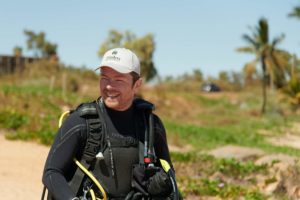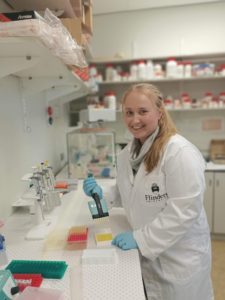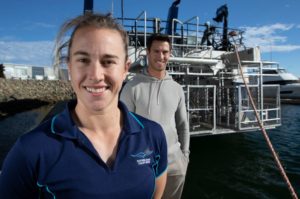
World-first AI technology aiming to produce seabed surveys that identify submerged Aboriginal archaeological sites in Australia is one of three Flinders University research projects awarded more than $1.34 million in ARC Discovery Early Career Research Award (DECRA) funding.

$443,608 has been awarded to Dr John McCarthy from the College of Humanities, Arts & Social Sciences to develop a technique that can effectively pinpoint potential archaeological material within large survey areas by tagging features that can be examined through scientific dives along the Australian coastline.
“We’re aiming to develop processes that pair machine learning algorithms, marine robotics, and scientific diving to greatly enhance prospecting efficiency on potential submerged archaeological sites,” says Dr McCarthy.
“This will benefit the protection and management of these resources on Australia’s continental shelf, providing tools to help the offshore industry avoid impacts on Indigenous cultural heritage.”
Fellow DECRA recipient Dr Alyce Martin ($468,582) aims to understand how serotonin-producing cells in the gut interact with gut bacteria (microbiome), using a combination of cells in culture and live germ-free and genetically modified mice.

“This research is generating new knowledge on cellular interactions that underlie important physiological pathways, such as the control of blood glucose and fat storage,” says Dr Martin.
“This project aims to achieve this by identifying how gut bacteria communicates with serotonin-producing cells to regulate metabolism, and whether diet acts via a gut microbiome-serotonin axis to impact physiology. The benefit of this research will be to provide a new understanding of highly complex physiological systems that regulate our health.”
The ARC funding includes a three-year grant to Dr Lauren Meyer in the College of Science & Engineering ($432,447) who will use sharks’ unique dental anatomy and global movement data to characterise the roles of marine predators and determine how resilient they are to anthropogenic and natural impacts.

Dr Meyer says the project is focused on establishing the relationship between diet variation and movement and using this relationship to rank marine predators’ resilience to marine industry impacts, particularly on sharks and rays as they are predators already at an elevated risk of extinction.
Professor Robert Saint, Deputy Vice-Chancellor (Research) at Flinders University, says the ARC Discovery Early Career Research Awards will enable the outstanding young recipients to undertake valuable scientific research.
“It’s pleasing to see our success rate for these awards well above the national average and we really look forward to seeing the positive outcomes of these projects.”
“Our success in attracting funding reflects the quality of our young researchers’ strengths. The funding will support them to develop their research careers and to generate knowledge that will impact on an important set of challenges.”

